At a time when an uncertain economic environment and financial climate is forcing existing investment fund managers to rethink their tried and tested models, and newcomers to the industry are struggling to gain traction amid rising regulatory constraints and costs as well as greater investor reticence, the emergence of the Mediterranean island nation of Malta as a player within Europe’s established fund centres is providing the industry with an attractive alternative at a vital time.
With a cost base significantly lower than in Luxembourg and Dublin, which up to now have been the continent’s main centres for both traditional and alternative investments, a regulator hailed for its flexibility and accessibility, a well developed physical and technology infrastructure and a well-educated and increasingly skilled workforce, Malta is rapidly becoming a popular choice as a domicile both for funds and management companies.
The island’s near-constant sunshine and quality of life – along with efficient fiscal concessions – is a lure for industry professionals who do not need to be permanently based in Europe’s main financial centres. And the interest in Malta appears destined only to grow as the European Union’s impending Alternative Investment Fund Managers Directive, which will come into effect in July 2013, prompts non-EU alternative fund firms to consider how they plan to access European investors in the future.
According to Bruno L’ecuyer, head of business development at FinanceMalta, a public-private initiative established to promote Malta’s international financial centre, a number of unique selling points make Malta attractive for investors, “each having a different meaning to people,” he says.
“There are three key areas, the first being steadfast regulation: the strength of the institutional and regulatory framework, coupled with the regulator’s firm but pragmatic approach and, of course, accessibility. “The second is the domicile’s agility in the market, the can-do attitude in the industry, and the efficient, dynamic and effective business environment. Being a small country in fact works in our favour. Third is the cost-competitive quality of the English-speaking skills available thanks to an excellent domestic further and higher education system, an ongoing training culture in the sector, and a highly motivated workforce with a strong work ethic. Managers are looking favourably at Malta, especially those breaking away from larger structures to set up their own boutique fund businesses. They are more sensitive to cost but still want to be within Europe, and Malta can meet those requirements.”
The development of the fund industry over the past decade, and especially since Malta joined the EU on May 1, 2004, has attracted a broad range of fund service providers to the island. They include leading alternative and Ucits administrators but also a number of custodian banks, adding depth to a sector that already includes the ‘Big Four’ accounting and audit firms and various law firms specialising in international financial services business.
“According to the Malta Financial Services Authority, there are now more than 100 asset management firms licensed on the island, as well as around 20 fund administrators,” says Charles Azzopardi, managing director of HSBC Securities Services (Malta). “Fund managers and promoters are setting up in Malta to benefit from advantages such as the level of costs and tax efficiency, as well as the regulator’s flexible but firm approach. As Malta becomes more a domicile of choice, we have seen some big investment managers come to the island. Whatever the scale of the fund manager, it is highly probable that they will find it easier to set up in Malta than in larger jurisdictions such as Luxembourg or Dublin.”
The Malta advantage
Earlier this year the government brought in a new tax regime designed to attract expatriates with high-end skills and capable of transferring knowledge to local employees. Referred to as The Highly Qualified Persons Regulations, its aim is to attract highly-qualified professionals, predominantly within the financial services sector, who would be working with licensed companies in Malta and whose annual income exceeds EUR75,000 a year. They must hold certain prescribed posts such as portfolio manager, chief executive or chief investment officer. They are eligible for up to five years for an income tax rate of 15 per cent, compared with the usual rate of 35 per cent, and anything above EUR5m is completely exempt from Maltese tax. The government is sending a message that it doesn’t simply want an increase in the number of licensed companies if it means brass nameplate entities. They want to bring substance and know-how to Malta.
L’ecuyer says the long-term vision for the fund industry involves the development of clusters to make Malta a full-service domicile in every respect. “This organic development is well underway, although more work needs to be done in the area of multinational banks and custodians,” he says. “But watch this space.”
Needless to say, such interest in Malta also means added interest in the real estate sector, so much so that unlike other countries, property prices in Malta have stood still and only saw a marginal average reduction in value. Specific areas and regions have maintained a healthy capital appreciation of up to 5%. The rental market is booming and many are seeking Malta for property investment. Of specific interest are Special Designated Areas, where the government holds no restrictions in terms of who and how many properties a foreign national can purchase (such as Tigne Point, Pendergardens and Fort Cambridge).
Article by Simon Gray
Source: www.hedgeweek.com




 Back to Blogs
Back to Blogs


